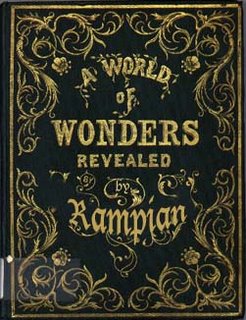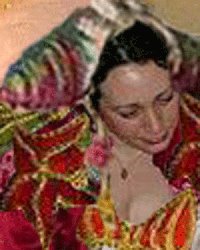
The Book I’d Write
I’ve awakened so many times thinking “I’ve got to write this story” –the story I was dreaming---“If I could just capture it, it would be incredible. It would feel so true, so powerful.” My dreams are often narrative pieces, with characters and plot and story arcs. Seldom am I in my own dreams. Rather, my dreamworld is populated by strangers with their own motives, their own conflicts. I observe them from above, yet feel their feelings so strongly that I sometimes wake up crying, or laughing, or terrified. (Once, fully asleep, I grabbed poor Brian by his pajamas and screamed in his face.)
There have been prisoners and tycoons in my dreams, femme fatales, orphaned children, and impoverished medical students in my dreams. I write down their stories, then I’m disappointed to see how unimpressive they look in black and white. If only I could make my readers feel the emotions I feel when dreaming these stories---love, longing, frustration, joy, tenderness, loss. This is the power I wish to capture as a writer. The power to awake emotions based not on a situation, but on the coming together of the artist’s expressive skill and the strength of her reader’s imagination. Those who ate of my stories would cry all night or feel comforted in knowing they could dip back into my stories to escape their day to day worries.
I would like to make my readers feel the way I feel when I listen to De-Phazz’s ‘No Jive’ or Wagner’s ‘Tristan and Isolde.’ That is the ambition that drives me to write, beyond any desire for fame or praise or financial success. It has something to do with what Frederico Garcia Lorca called ‘el duende’. He says of ‘el duende’:
In all Andalusia, from the rock of Jaen to the shell of Cádiz, people … find it in everything that springs out of energetic instinct… And Manuel Torres, to my mind a man of exemplary blood culture, once uttered this splendid phrase while listening to Falla himself play his "Nocturno del Generalife": "Whatever has black sounds has duende."…
These black sounds are the mystery, the roots that probe through the mire that we all know of, and do not understand, but which furnishes us with whatever is sustaining in art. Black sounds: so said the celebrated Spaniard, thereby concurring with Goethe, who, in effect, defined the duende when he said, speaking of Paganini: "A mysterious power that all may feel and no philosophy can explain."…
It seems easier to find duende in music than in writing. In writing, we must make use of abstract symbols and that takes us one step away from the thing itself. Writing is necessarily cerebral first, and then, if the writer is very good, writing passes to the body, to the very bones. Meanwhile, the duende “is not in the throat, the duende comes up from inside, up from the very soles of the feet. That is to say, it is not a question of aptitude, but of a true and viable style—of blood, in other words; of what is oldest in culture: of creation made act.”
Perhaps this is why my best writing comes after a long session of listening to music. It helps me get beyond my little brain. In fact, I have no recollection of writing my two best stories. I remember sitting in the library researching them, which also seemed part of the preparation process. I remember coming across a photograph of a house in an old black and white book about California architecture and spending a good half-hour staring at it, knowing that that was the house in which my characters would live.
There is so much frustration wrapped up in writing because so much of the world seems to conspire in bringing us out of that trancelike state of the creative imagination. “Wake up!” people say, “down to business.”
The reason why drugs have little appeal to me is that when I’m in that space of creating or sharing someone else’s expression of duende, it is an altered reality. The surface of my skin tingles, I feel vibrantly alive and connected to human history, human reality across culture and geography. It is the closest I’ve come to a feeling of religious unity. That is why art, to me, is spiritual. I protect these feelings because art is so marginalized in our culture. In school, art, whether music, painting, or creative writing, is “an elective.” “Enjoying art” is reserved for the upper-middle classes who can afford season symphony tickets and museum memberships. It becomes something to talk about at dinner parties.
Frankly, I can never enjoy concerts in symphony halls because it feels artificial to have 1000 strangers sitting in the same place, trying hard not to cough or move, while the solitary artist tries to pretend they don’t exist. Instead, I remember the times I did feel the duende: wandering the vineyards and listening to my childhood sweetheart playing Lizst through the window of his parent’s stone cottage; a hot summer night last July on the Cape, lying in bed and listening to Billie Holiday through my earphones. These experiences were without pretense, without the self-conscious awareness of going to the museum or concert hall to appreciate art. Not to say that I haven’t enjoyed art in a museum setting---but it takes some effort to get over the awareness of the others around you, of the feeling that you should be appreciating the art, of the bit of self-congratulation that goes along with doing anything that’s good for you.
So I have a little trick I do when going to art museums: I take a notebook and pen with me. Then I find a painting or sculpture that strikes me and I draw it. That slowing down to look at the details, that transforming the piece into my own little sketch, creates a feeling of intimacy with the piece---and with the artist. It’s rare that this leads to recognition of the duende, because the intellect is often in the way. I can name two artists in whose art I have been able to see the duende: Paul Klee and my mother. My mother’s picture was a pastel of trees. The swirling, striving lifeforce of those trees touched those instincts in me. Perhaps the reason I felt it so strongly was because it was my mother’s piece and her drive to create was passed on to me as I grew in her womb. That picture of the trees was, in part, my heritage.
How does one provoke a strong response in one’s reader without melodrama? How is what I’m looking for not a harlequin romance? How is the guitarist Lorca talks about not sentimental? It has something to do with an absence of ego. It is not the expression of MY pain, but rather the expression of the world’s pain…or joy…or fear. It is not isolated to this time or place, but could be found in Coleridge’s 19th century England or Lao Tzu’s China.
“Well that’s ambitious,” you may think. And I do, too. Which is the very left brain idea that stops me. But the amazing thing is that, in that altered state, these worldly worries have no meaning. I just have to beat my way through them to get to that place. And I will try. I have to try. I can think of no greater satisfaction than getting there.

No comments:
Post a Comment